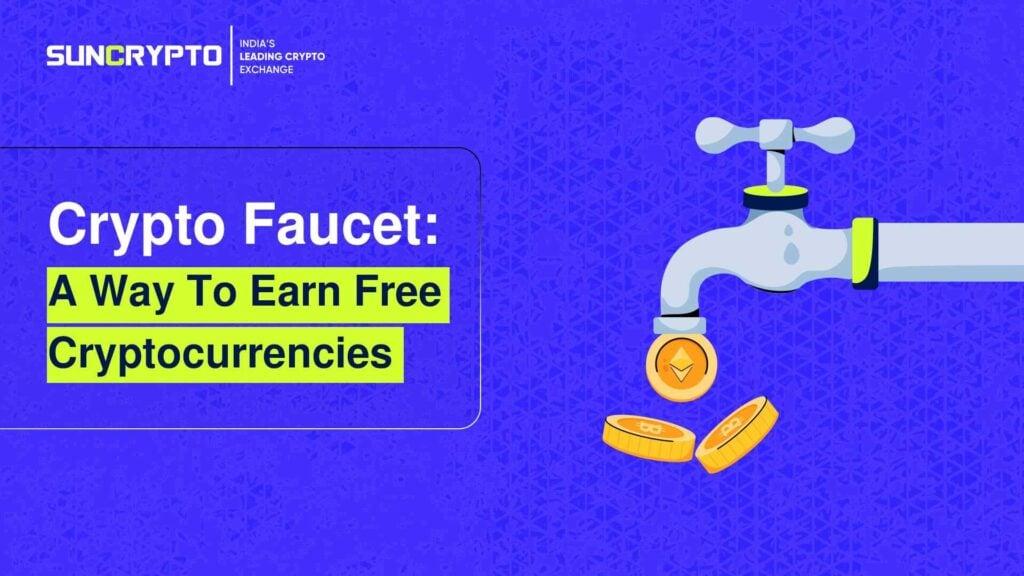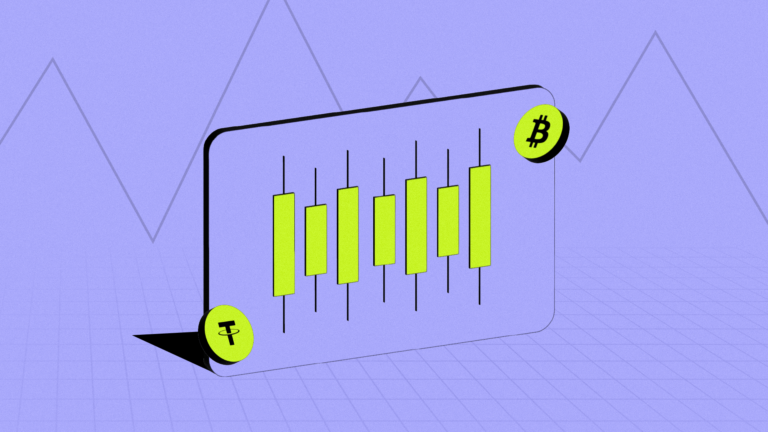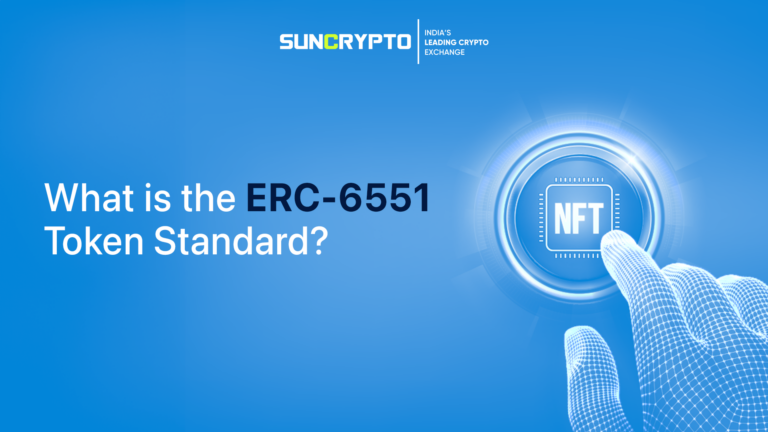Economists stress the idea that nothing comes for free, a principle challenged by a phenomenon in the world of cryptocurrencies. If you’ve acquired Bitcoins or other digital currencies at no expense, it probably links back to a Crypto Faucet.
Many websites claim to provide free cryptocurrencies, but not all of them operate as crypto faucets. These faucets have a specific function, offering a legitimate way to obtain free Bitcoins and other digital currencies. This blog explores the beginnings of crypto faucets and explains their importance in the cryptocurrency sphere.
What is Crypto Faucet?
Crypto Faucet is a software designed for users to acquire complimentary cryptocurrency by completing minor tasks. These faucets leverage the divisible nature of cryptocurrencies to provide users with small amounts of crypto rewards. The term “faucet” is employed due to the small-scale nature of the incentives, akin to droplets of water from a tap.

Typically, users receive modest amounts of a particular cryptocurrency through these faucets. Despite the earnings being relatively small, they can still be appealing. The tasks necessary to obtain free crypto are generally straightforward and don’t demand prior knowledge of cryptocurrency or blockchain.
Each crypto faucet maintains a reward pool, allowing users to claim their rewards upon meeting specified thresholds or conditions. However, accumulating substantial rewards over an extended period by performing these tasks remains challenging.
Working of Crypto Faucet
A cryptocurrency faucet provides various tasks for users, including solving puzzles, sharing links, viewing ads, taking quizzes, downloading apps, and watching videos. Completing these tasks enables users to earn cryptocurrencies without cost.
Typically, more time-consuming tasks like watching videos or downloading apps yield higher rewards, whereas simpler tasks like solving puzzles or sharing links offer fewer rewards. Moreover, the distribution of faucet rewards varies, depending on factors such as time, tasks completed, or website traffic. For instance, some faucets may restrict when users can claim their rewards.
To earn free crypto, individuals need to register before engaging in the faucet’s tasks. During the sign-up process, users must provide basic information and their primary wallet addresses to receive rewards. Beginners should prioritize creating a wallet to avoid losing accumulated rewards. Once registered, the system generates a micro wallet for users to store small rewards obtained from completing tasks.
Typically, cryptocurrency faucets do not allow direct withdrawal of the earned cryptocurrency. They set a threshold that rewards must surpass before becoming eligible for withdrawal. Unfortunately, this threshold can be quite high, requiring users to spend weeks accumulating rewards. When the threshold is met, the micro wallet transfers the cryptocurrency to the main wallet address.
However, if the faucet permits withdrawals, it often imposes limits on the amount users can withdraw at once. Some high-incentive faucets might have low withdrawal limits or complex withdrawal procedures, such as extensive KYC verification processes.
Are cryptocurrency faucets a worthwhile endeavor?
It’s predictable because those who run the faucets typically finance the rewards themselves. They primarily benefit from the increased website traffic due to the allure of “free crypto.” Consequently, they stand to profit from users who engage with their ads and participate in affiliate programs and referrals through faucet rotators.
While owners can reap rewards from a crypto faucet, sustaining it can demand significant time, mental effort, and electricity. Additionally, there’s a risk of hackers pilfering the deposited funds belonging to the faucet owners.
Examples of Crypto Faucet Platforms
Gavin Andersen created the first-ever cryptocurrency faucet to raise awareness about Bitcoin (BTC) when it wasn’t highly valued. The primary goal was to encourage individuals to learn more about cryptocurrencies.

Initially, the most significant reward offered by the first cryptocurrency faucet was approximately 5 BTC. Presently, a Bitcoin faucet enables users to earn up to 0.00005000 BTCs or 5,000 satoshis. Satoshis represent the smallest unit of BTC typically distributed by these faucets. Roughly, $1 equals about 12 thousand satoshis.
The pioneering giveaway was the Bitcoin one. Following that, other similar platforms emerged, such as Dogecoin (DOGE) faucets and Ethereum (ETH) faucets. Each of these platforms offers different cryptocurrencies. Here are specifics about the Bitcoin, Dogecoin, and Ethereum faucet platforms:
▪️ Bitcoin Faucet: Given the rise in BTC value, rewards from Bitcoin giveaways have become very modest. Users might spend a long time completing tasks, only to earn a small sum. Bitcoin Zebra and Bitcoin Aliens are examples of high-traffic Bitcoin giveaway platforms.
▪️ Ethereum Faucet: These platforms offer free ETH, but users withdrawing funds may encounter transaction fees or gas charges on the Ethereum network. As a result, the expenses for transferring ETH to the primary wallet might surpass the accumulated ETH rewards. Fire Faucet and Dutchy CORP are examples of Ethereum giveaway platforms.
▪️ Dogecoin Faucet: Initially, DOGE had a low value, and the rewards from Dogecoin giveaways were around 1 to 5 DOGEs. Presently, 1 DOGE is valued at $0.25 USD. Some of the Dogecoin giveaway platforms include Moon Doge and Free-Dogecoin.
Cryptocurrency Faucet Raptor
Because numerous crypto faucets exist, individuals can employ a crypto faucet rotator to manage tasks across multiple preferred faucets each day. This tool enables users to swiftly switch between faucets, accelerating the collection of rewards.
Crypto faucet rotators are accessible on platforms like Google Play and the App Store, allowing users to select based on ratings. Furthermore, these rotators can assist users in distinguishing genuine crypto faucets from potential scams.
A typical faucet rotator consolidates verified faucets with legitimate rewards, preventing users from wasting time. Moreover, it organizes crypto faucets based on withdrawal methods, language preferences, and additional user-friendly features.
Users have the flexibility to select or remove faucets of their choice to earn rewards. Additionally, certain rotators integrate a reporting system, enabling users to flag malfunctioning or invalid crypto faucets, ensuring an updated selection for users.
Is it Safe to Take Part in Crypto Faucet?
Not all cryptocurrency faucet platforms can be trusted as some are used by their owners for fraudulent purposes. In the past, these scams were so widespread that Google and Facebook had to prohibit them. Recognizable signs of scam sites include unusually high rewards, unsolicited faucet offers, and numerous grammatical errors.
What are the fraudulent tactics associated with cryptocurrency faucets?
Cybercriminals might compromise cryptocurrency faucet websites with malware, potentially harming users’ computers or installing mining software. Some sites aim to extend users’ visits to utilize their computers for mining activities, often going unnoticed due to the high volume of advertisements causing increased CPU usage.
Upon reaching a threshold, users may find themselves banned from the site, and unable to log in. Certain faucets may implement a slowdown as users near their threshold, making further earnings extremely difficult and forcing users to invest more effort.
There are instances where the website asks for a transaction fee before releasing earned cryptocurrencies, but upon payment, users receive no rewards. Additionally, some sites erase users’ accrued cryptocurrencies after task completion or reaching the threshold, rendering their efforts futile.
Hence, it is advisable for users to conduct thorough research before engaging with a cryptocurrency faucet. This includes checking reviews and community forums to identify reputable platforms. Joining communities that have tested these faucets can enhance the selection process and ensure more efficient and secure choices.
Conclusion
Crypto faucets can be an interesting and engaging way to begin your crypto journey and learn about the crypto ecosystem without risking your money. However, it will not pay your expenditures or serve as a replacement for your day work.
Always select a reliable crypto faucet platform with positive user ratings and that has been evaluated by major crypto wires. If you use crypto faucets effectively, you might earn a considerable return over time as the market value of the currencies rises.
To learn more about Crypto Faucet, go check out SunCrypto Academy.
Disclaimer: Crypto products and NFTs are unregulated and can be highly risky. There may be no regulatory recourse for any loss from such transactions. All content provided is for informational purposes only, and shall not be relied upon as financial/investment advice. Opinions shared, if any, are only shared for information and education purposes. Although the best efforts have been made to ensure all information is accurate and up to date, occasionally unintended errors or misprints may occur. We recommend you do your own research or consult an expert before making any investment decision. You may write to us at [email protected].






Plz provide legitimate link to download